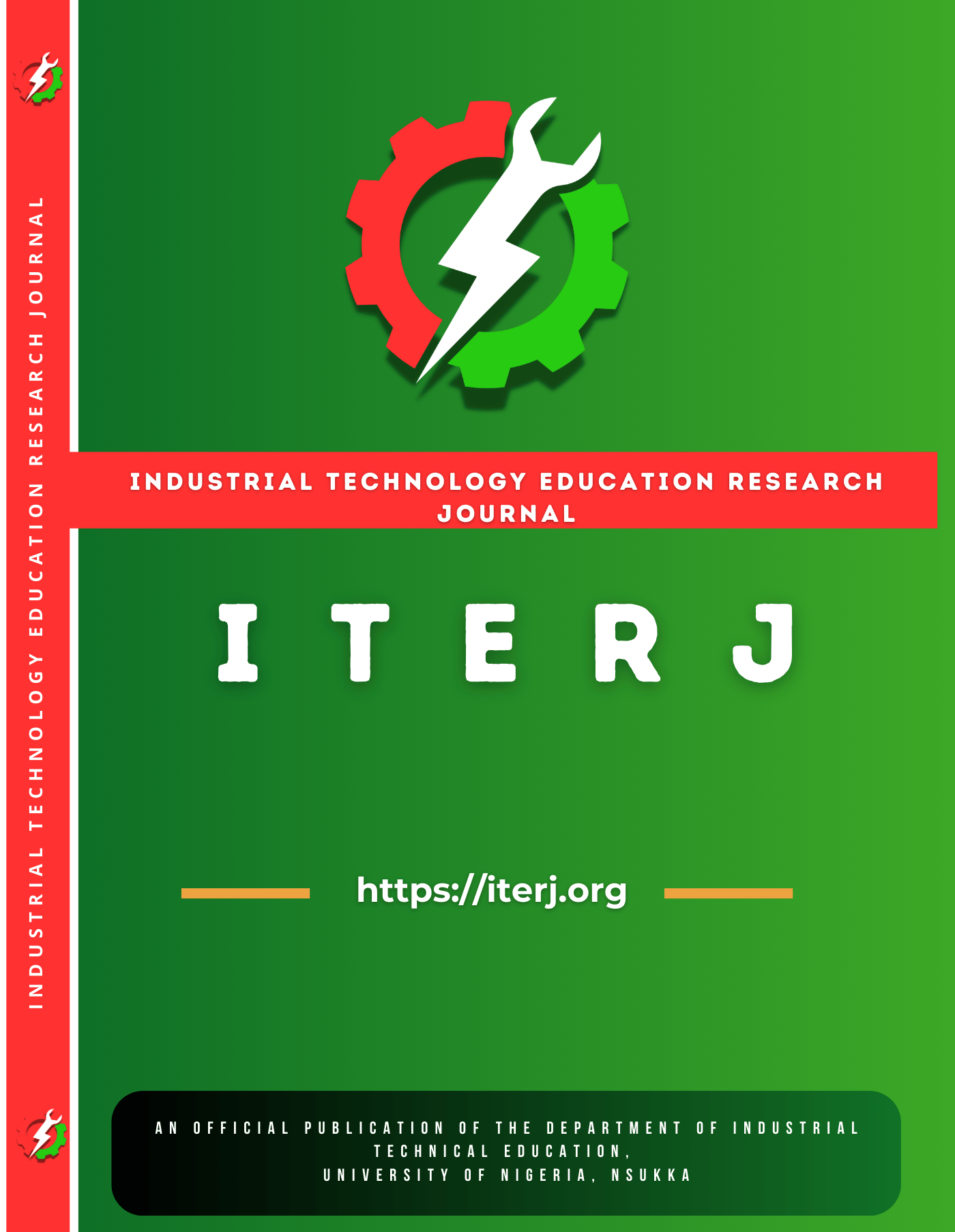Enhancing the Role of TVET Educators in Driving Innovation and GrassrootsDevelopment in Nigeria amidst Global Economic Challenges
Keywords:
TVET educators, innovation, grassroots development, Nigeria, global economic challengesAbstract
The study examined the roles of TVET educators, the obstacles they encounter in promoting grassroots development, the strategies they can adopt to navigate current economic challenges, the impact of partnerships with local industries, and how policy changes can strengthen their roles as agents of innovation and grassroots development. The study was a descriptive survey conducted using a 5-point Likert scale instrument designed to address all the research questions. The study population included all TVET secondary school educators in Ogun State, with a sample population comprising 31 TVET secondary school educators teaching technical subjects. The results were analyzed using SPSS. The findings revealed that (i) TVET educators have the capacity to drive innovation and development at the grassroots level (80% of respondents), but 100% believe they need to update their skills regularly. It was also discovered that while underfunding is a major obstacle (100%), an obsolete curriculum is another significant barrier (90%). Another finding is that for sustainable grassroots development to be achieved, educators must have access to online resources that support skills development (93.34%). All respondents acknowledged that partnerships and exchange programs are key strategies to increase competence and funding. However, 96.67% opined that for an ideal policy to make an impact, all stakeholders must be involved in its formulation. In light of these findings, the following recommendations were made: (i) To fulfill their roles, TVET educators must develop a personal interest in self-development; (ii) teaching methods must shift from teacher-centered to learner-centered, with lessons focusing more on activities rather than sedentary approaches; (iii) community engagement is essential, and teachers should create forums to engage the community; (iv) To have their voices heard, TVET educators must establish a strong advocacy association; and (v) they must leverage Parent-Teacher Associations as partners for grassroots development. In summary, this paper examines the challenges faced by TVET educators, including inadequate funding, outdated curricula, and limited professional development opportunities. Through a comprehensive analysis of the findings, the paper advocates for strategic investments in TVET education, policy reforms, and capacity-building initiatives to empower educators and maximize their potential as catalysts for sustainable development. The findings also underscore the necessity of a robust TVET system to navigate economic uncertainties and promote inclusive growth in Nigeria.








